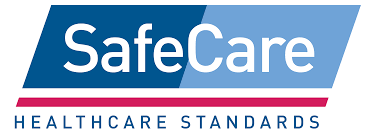
Safety Manager
Job Description
Job Description:
As a Safety Manager in the Fire Protection Industry, you will implement, lead, and manage the company’s health and safety programs across all (multi-state) job sites, facilities, and operational units. This role ensures compliance with all regulatory requirements and company safety standards and includes specialized oversight of both union and non-union personnel in construction and service environments. The Safety Manager is expected to proactively build a culture of safety, accountability, and continuous improvement throughout the organization, with a focus on compliance, risk reduction, and training.
Responsibilities
Responsibilities:
Regulatory Compliance & Policy Management:
- Develop, implement, and maintain safety policies and procedures in compliance with OSHA and state/local regulations.
- Ensure company-wide adherence of fire protection safety regulations and industry codes.
- Maintain up-to-date knowledge of changes in safety regulations and proactively update company policies and training accordingly.
- Prepare and manage documentation for safety audits, insurance providers, and regulatory inspections.
Job Site & Field Safety Oversight:
- Conduct regular field audits, job site inspections, and hazard assessments to ensure a safe work environment.
- Monitor construction and service crews for proper PPE use, safe equipment operation, and adherence to job-specific safety protocols.
- Lead and support incident investigations and near-miss reviews; document findings and implement corrective actions.
Union & Non-Union Workforce Compliance
- Ensure all safety practices comply with collective bargaining agreements, labor regulations, and prevailing wage standards.
- Partner with union representatives and field supervisors to resolve safety concerns in line with both regulatory and union standards.
- Understand and manage differences in safety obligations between union and non-union labor, including training access, job classifications and reporting structures.
- Maintain documentation and records required for union grievance procedures or labor audits related to safety.
Training & Employee Development:
- Design and delivery safety orientation programs for all new hires (union and non-union).
- Develop, schedule, and track ongoing training programs (e.g., fall protection, vehicle and accident safety, hot work permits, confined space, fire extinguisher use, lockout/tagout).
- Maintain training certifications and documentation in accordance with union agreements and legal mandates.
Safety Program Administration:
- Maintain and improve the company’s Safety Management System; manage incident logs, OSHA 300 logs, and corrective action databases.
- Track and report safety KPIs including TRIR, EMR, and lost-time incidents to senior leadership.
- Lead company-wide safety initiatives, Safety Week campaigns, and toolbox talks.
Insurance, Risk Management & Claims Support:
- Collaborate with insurance providers and HR to manage claims and return-to-work programs.
- Participate in risk assessments for new projects and company initiatives.
- Support internal and external audits related to worker’s compensation, liability, and insurance coverage.
Miscellaneous Tasks:
- Travel to project sites and facilities as needed.
- Perform other duties as assigned.
Job Requirements
Qualifications:
- Bachelor’s degree in Occupational Health & Safety, Environmental Science, Construction Management, or related field preferred but not required.
- 5-7+ years of safety leadership experience in fire protection, construction, or heavy trades.
- Prior experience working with unionized construction or service workforces required.
- Safety certifications (e.g. OSHA 500) Required.
- Excellent interpersonal and conflict resolution skills; able to work with union stewards and field leadership effectively.
- Proficiency in using Microsoft Office Suite (Word, Excel, Outlook).
- Exceptional organizational skills and attention to detail.
- Ability to handle multiple tasks and prioritize effectively.
- Familiarity with basic office equipment and technology.
- Reliable and adaptable, with the ability to work independently and as part of a team.
- Must be able to travel to job sites regularly and work in active construction environments.


